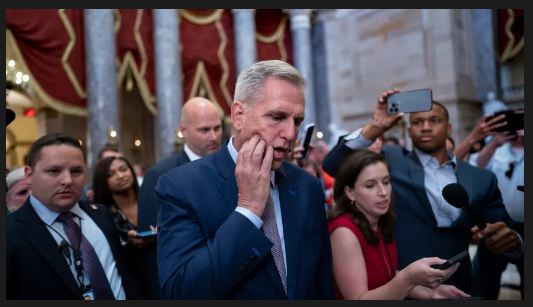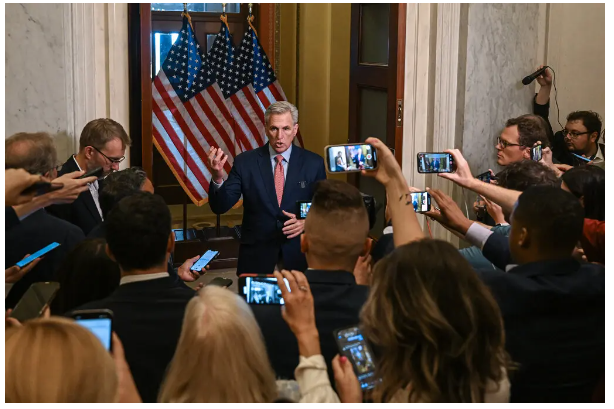 Political tensions are rising as Congress faces a critical budget deadline. The House of Representatives is currently at an impasse over federal spending plans, with both Republican and Democratic lawmakers struggling to reach consensus. House Speaker Mike Johnson, attempting to appease conservative members of his party, recently presented a budget proposal that has left both moderates and the GOP’s far-right factions dissatisfied
Political tensions are rising as Congress faces a critical budget deadline. The House of Representatives is currently at an impasse over federal spending plans, with both Republican and Democratic lawmakers struggling to reach consensus. House Speaker Mike Johnson, attempting to appease conservative members of his party, recently presented a budget proposal that has left both moderates and the GOP’s far-right factions dissatisfied
The U.S. government is inching toward a shutdown if a budget deal isn’t reached before the fiscal year deadline in October. This high-stakes negotiation is part of a broader debate over national spending, especially concerning military funding and social services. While some Republicans are calling for deeper cuts to domestic programs, Democrats warn that the proposed reductions could have devastating impacts on healthcare, education, and welfare programs across the country
 Adding to the political friction, the issue of border security has also become a flashpoint. Several Republican leaders have insisted on linking increased border enforcement to any budget agreement, while Democrats have pushed back, accusing the GOP of leveraging an essential legislative process to push through unrelated policies
Adding to the political friction, the issue of border security has also become a flashpoint. Several Republican leaders have insisted on linking increased border enforcement to any budget agreement, while Democrats have pushed back, accusing the GOP of leveraging an essential legislative process to push through unrelated policies
With the clock ticking, both parties are under intense pressure to avoid a government shutdown, which would have widespread consequences for federal workers, contractors, and essential services. The outcome of these negotiations could also shape next year’s presidential election, as both parties seek to frame the debate in terms of fiscal responsibility and national priorities.
As Washington remains gridlocked, political analysts are watching closely to see how the upcoming debate could influence the wider U.S. political landscape.
Ennywealth


